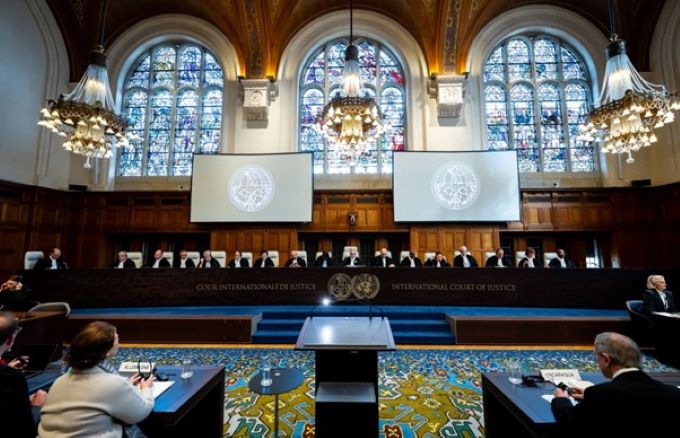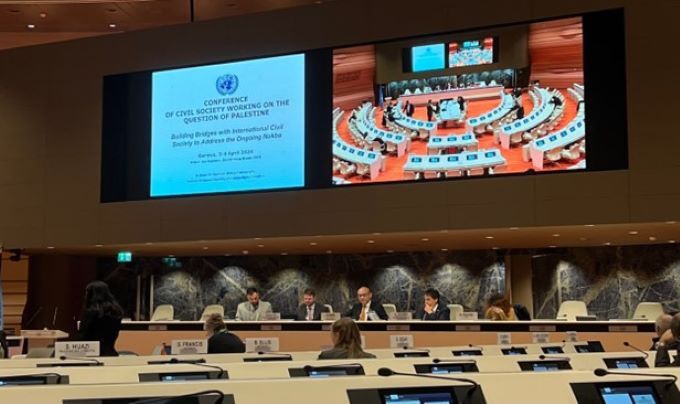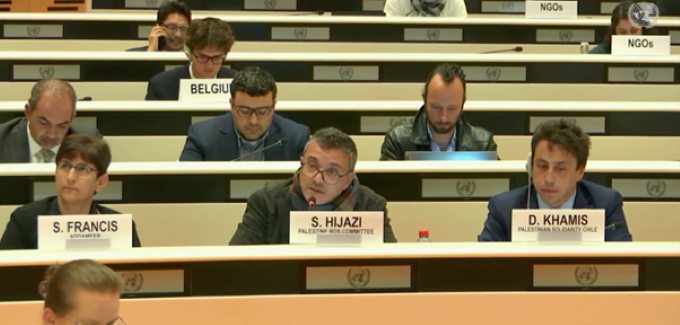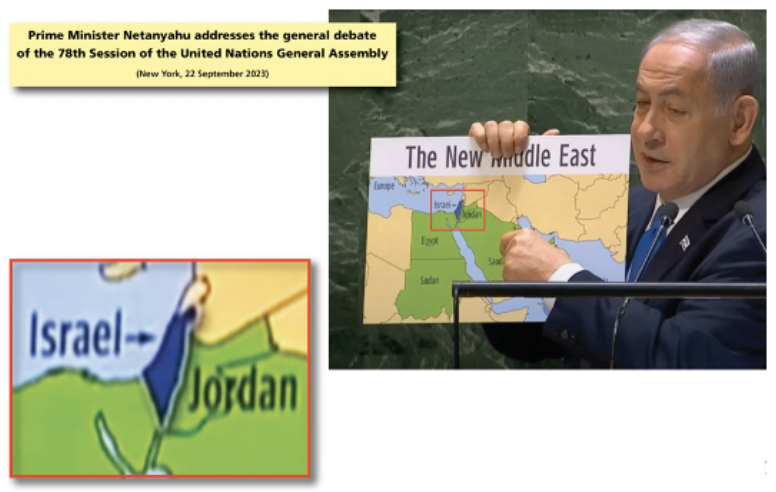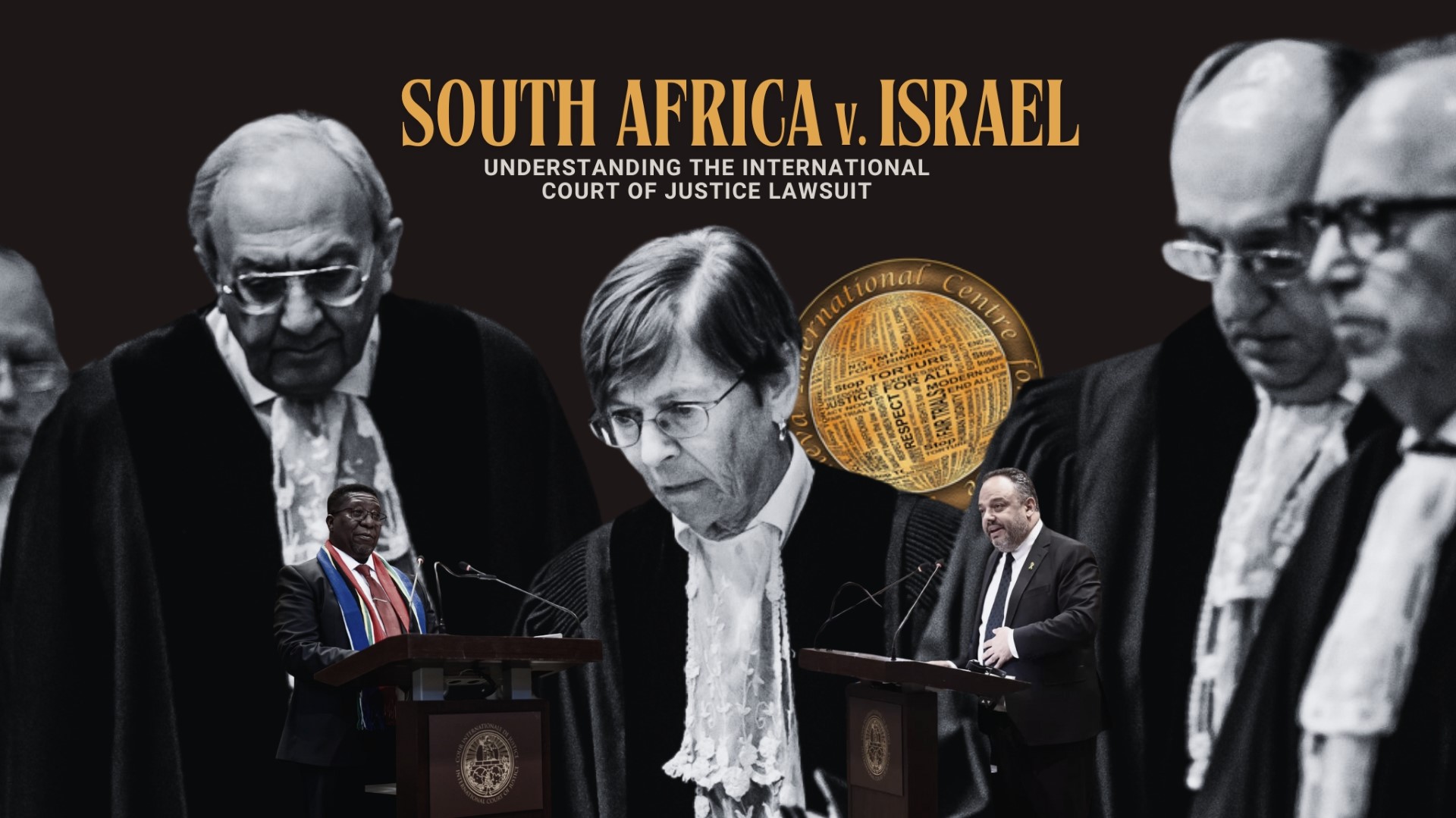Palestinian People's Food Sovereignty: A Call for Justice and Action
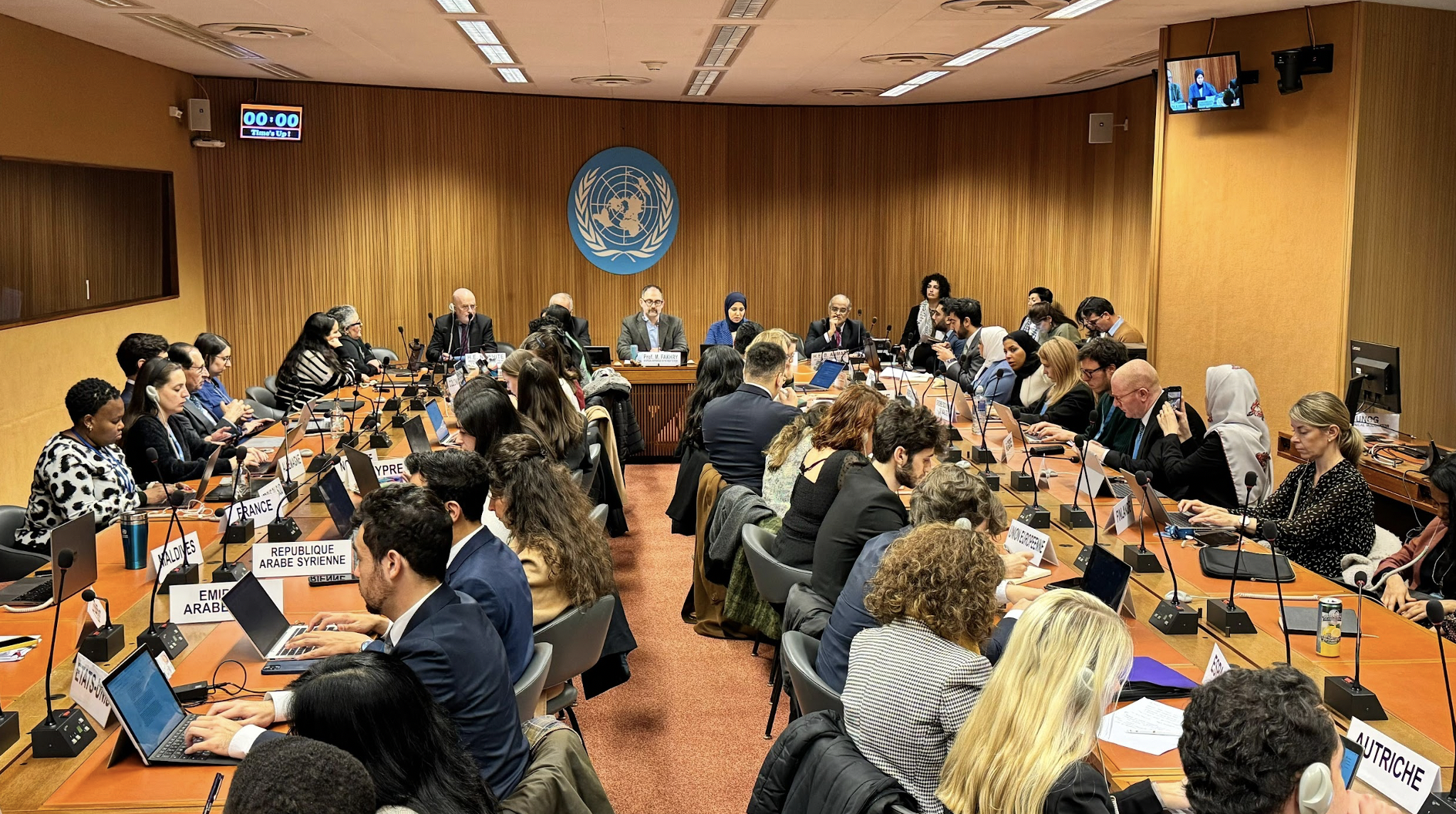
On 6th March 2024, during the 55th session of the Human Rights Council at the United Nations Office in Geneva, a side event on the Palestinian people’s Food Sovereignty held by the Special Rapporteur on the right to food security unfolded. Co-sponsored by Qatar, Palestine, Ireland, and Pakistan, the event sought to illuminate, inter alia, the challenges confronting Palestinians, especially those residing in Gaza, in accessing adequate food resources.
The event opened with a thought-provoking address from Professor Michael Fakhri, serving as the Special Rapporteur on the right to food. Professor Fakhry started by contextualising the issue of the Israeli occupation and all that comes with it, tracing the historical roots of Palestinian oppression back to 1948. He provided a sobering account of the adverse impacts of Israel's blockade on Gaza, emphasising its detrimental effects on food security and characterising it as a severe violation of humanitarian principles.
Building upon Professor Fakhry's presentation, H.E. Mr. Noel WHITE, the Irish Ambassador, underscored the dire humanitarian crisis in Gaza, with 2.2 million Palestinians facing acute food insecurity after enduring a 16-year blockade, in addition to 97% of natural water supplies in the Gaza Strip being unfit for consumption. Ireland's response has been significant, with increased funding of 20 million euros to UNRWA following the suspension of funds by key players such as the United States, etc., alongside substantial contributions from other NGOs. However, White emphasised that lasting solutions hinge on a ceasefire, highlighting the pivotal role of peace in enabling Palestinians to achieve food sovereignty. This call for collective action resonates as a poignant reminder of the urgent need to address the root causes of food insecurity and uphold the rights and dignity of Palestinians in Gaza.
Subsequently, H.E. Mrs. Hend Abdalrahman AL-MUFTAH, representing Qatar, reiterated the fundamental right to food enshrined in international law, which included the principles of availability, accessibility, and quality. She called out the blockade imposed by Israel as one which flagrantly violates these principles, thereby jeopardising the right to life of countless Palestinians, especially children, as highlighted by the alarming statistic that 1 in 6 children in Gaza suffered from malnutrition, with 95% of households forced to limit food sizes. Mothers were particularly burdened, struggling to provide adequate nourishment for their families, resorting to desperate measures such as consuming animal feed to survive. UNICEF's warning of an impending malnutrition crisis further underscored the urgency of the situation, with every individual in Gaza experiencing hunger and starvation due to Israel's obstruction of access to essential resources, including cultural land and fishing areas. Qatar's call for a lasting ceasefire, an end to forced displacement, unimpeded access to humanitarian aid and medical support, and provision of support to UNRWA emerged as indispensable prerequisites for achieving lasting peace and addressing the humanitarian crisis in Gaza.
The Pakistani Ambassador, H.E.B. Bilal Ahmad, emphasised the findings of the latest report, condemning the use of starvation as a tactic to exacerbate the crisis and coerce Palestinians into abandoning their homes, further stressing the devastating economic ramifications of the blockade, which were pushing families into poverty. Ahmad issued a fervent call for an immediate ceasefire, urging for the opening of borders and unhindered access for cargo to ensure the delivery of vital humanitarian aid. Pakistan's steadfast support for Palestine was reiterated, with Ambassador Ahmad calling on the international community to act collectively, transcending individual national interests, to address the urgent humanitarian needs of the Palestinian people in Gaza.
Yasmeen El-Hasan, representing the Union of Agricultural Work Committees (UAWC), delved deeper into the intricate connection between food sovereignty and national sovereignty for Palestinians, emphasising that Palestinians are physically rooted in their land and that food sovereignty is intrinsic to their national identity. Drawing attention to the devastating impact of Israel's policies on Palestinian ecosystems and food sources, Hasan highlighted the urgent need for an end to the occupation to ensure Palestinians' access to food security. This assertion gains weight when considering the alarming statistics provided, such as the deliberate tactics employed by Israel to manufacture mass starvation in Gaza.
Ahmed Abofoul, a legal researcher at Al-Haq in Ramallah, highlighted the challenges faced by Palestinians in Gaza, noting their confined living conditions within a small area of 165 square kilometres over the past 17 years. He echoed the sentiments of previous speakers, emphasising the imperative of delivering adequate humanitarian aid to Gaza. Abofoul underscored the dire circumstances faced by Palestinians, highlighting their need to drink contaminated water, consume animal feed, and even grass in order to alleviate hunger. Abofoul's assessment of Israel's actions as constituting serious war crimes and crimes against humanity resonates with the reality on the ground. The continued practice of settler colonialism in Palestine has had catastrophic repercussions on food sovereignty, erasing once-flourishing ecosystems and food sources, like orchids, from the landscape. Israel's imposition of strict dietary restrictions, enforced buffer zones, and the use of white phosphorus chemicals further exacerbate the humanitarian crisis, leaving Gaza's land permanently infertile and its inhabitants reliant on external food sources.
Kinda Mohamadieh, a legal advisor at the Third World Network, addressed the complicity of corporations in perpetuating the occupation. She noted that businesses profit directly from land confiscation, exploitation of resources, and demolition activities in Israeli settlements, emphasising the need to hold these corporations accountable for their involvement in human rights abuses, and stressing adherence to international humanitarian law in dealing with them. She called for effective policies from states to address these abuses and urged countries to refrain from engaging in illegal activities with Israel.
In his concluding remarks, H.E.I. Ibrahim Khraishi, the Permanent Representative of the State of Palestine, underscored the imperative for international solidarity and called upon the global community to take tangible actions in support of Palestinian rights. He highlighted the pressing need for a lasting ceasefire and the lifting of the blockade to ensure Palestinians' access to food sovereignty and uphold their dignity. Ambassador Khraishi condemned the dissemination of misinformation, urging vigilance against false claims by the Israeli government and media. He stressed the need for accountability, citing its importance in achieving lasting peace, and reiterated the historical presence of Palestinians in the area predating Judaism, Christianity, and Islam. Khraishi decried indiscriminate attacks on civilians, such as the assault on hospitals, and denounced divisive rhetoric demonising Palestinians, citing Netanyahu’s remarks. He highlighted the plight of refugees in Gaza, once a thriving food basket now symbolising deprivation under Israeli control. Khraishi emphasised the crucial role of humanitarian aid and called for an end to the American veto on ceasefire resolutions at the Security Council. He urged nations to cease arms transfers to Israel to halt the cycle of famine and genocide, emphasizing the collective responsibility to confront the ongoing crisis and pursue a just resolution.
Geneva International Centre for Justice (GICJ) calls upon the global community to take concrete steps in support of Palestinian rights, including the provision of humanitarian aid, accountability for human rights abuses, and cessation of arms transfers to Israel. Additionally, there is a need for effective policies to address corporate complicity in perpetuating the occupation and ensure adherence to international humanitarian law. By addressing these issues comprehensively, the international community can contribute to alleviating the suffering of Palestinians and advancing the cause of justice and peace in the region. By staunchly advocating for the rights of the Palestinian people, the international community can play a crucial role in securing a brighter future for Palestinians both in Gaza and those within the Palestinian diaspora who have been displaced from their homeland.
Read more from GICJ:




